33+ Movies About Ancient Egypt
A detailed list of all the movies about ancient Egypt.
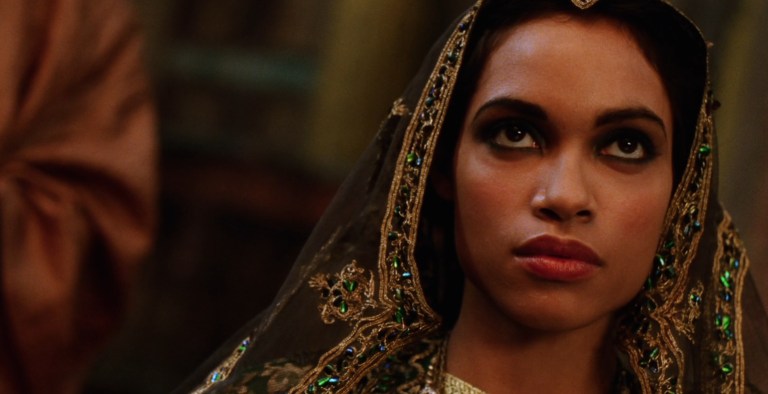
Ancient Egypt was one of the most miraculous civilizations to ever exist on planet Earth. There was nothing quite like this glimmering society adjacent to the Nile River in North Africa that reigned for 30 centuries, and there might never be again.
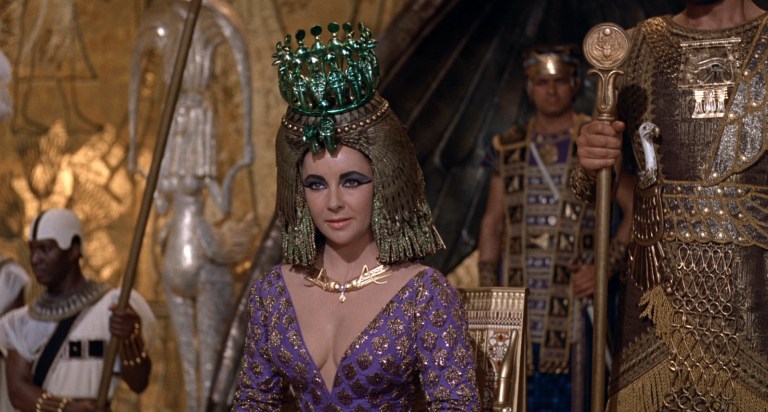
Without Ancient Egypt and the many innovations of their culture — linguistics, architecture, art, religious rituals, philosophy and so on — modern society would not be what it is today; for instance, the ancient Greeks used ancient Egypt as the genesis for their world.
The films in this list all pay homage to ancient Egypt, but ironically often with a focus on the biblical Book of Exodus, since that is the story from which all Western monotheistic religions—Judaism, Christianity, and Islam—derive, and which so much of Hollywood has been preoccupied with since the beginning of cinematic history.
If you’re looking for movies just about mummies head here, and if you’re looking for an accurate representation of what life in Ancient Egypt was really like you better off reading history books, absorbing documentaries, or watching Faraon (1966), a movie further described below.
The Loves of Pharaoh (1922)
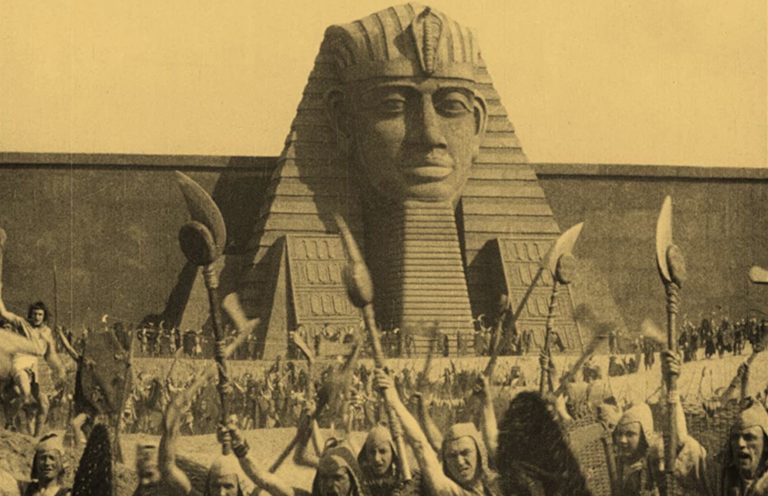
Emil Jannings, the first man ever to win a Best Actor Oscar, stars as the Egyptian pharaoh King Amenes, who casts his lustful gaze upon a Greek slave girl named Theonis (Dagny Servaes), who rebukes his advances because she’s in love with an Egyptian slave who’s being held captive in a rock quarry. Paul Wegener stars in blackface as Samlak, the King of Ethiopia, who offers Theonis to King Amenes as a peace gesture. This silent classic was directed by Ernst Lubitsch in Germany before he fled the Nazis and established himself as a prominent Hollywood director. Once thought to be entirely lost, The Loves of Pharaoh now exists in a shortened version that has been pieced together with stills and title cards in the place of the lost footage.
The Mummy (1932)
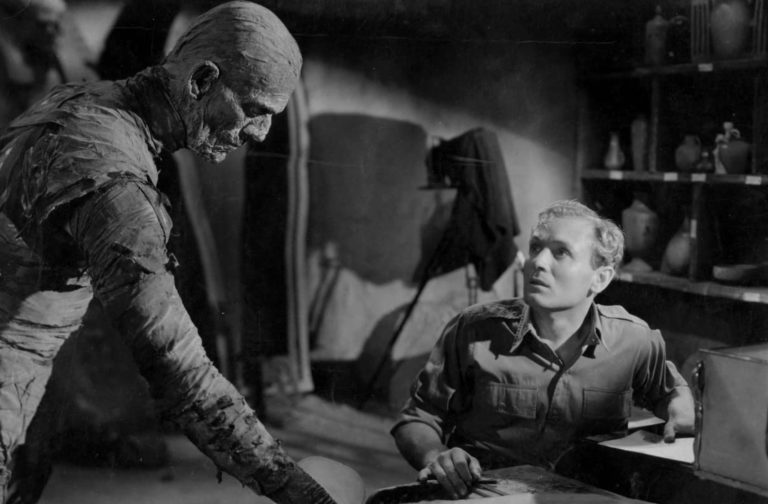
Fresh on the heels of reaching international stardom through his 1931 role as Frankenstein, Boris Karloff stars as Imhotep, an Egyptian mummy who’s been wrapped in winding cloths for 3,700 years until his corpse was disturbed by archeologists who accidentally bring him to life through a magic scroll. Using extensive makeup to hide his deep wrinkles, Imhotep poses as a modern Egyptian named Ardeth Bay as he roams Cairo in search of his lost love, whom he mistakes for a modern girl. Universal Studios made The Mummy in the wake of the discovery of King Tut’s long-lost tomb and the alleged curse that opening it would unleash upon the world. A review in The New York Times describes the scene when Imhotep is embalmed alive: “that moment when the tape is drawn across the man’s mouth and nose, leaving only his wild eyes staring out of the coffin, is one of decided horror.”
The Egyptian (1954)
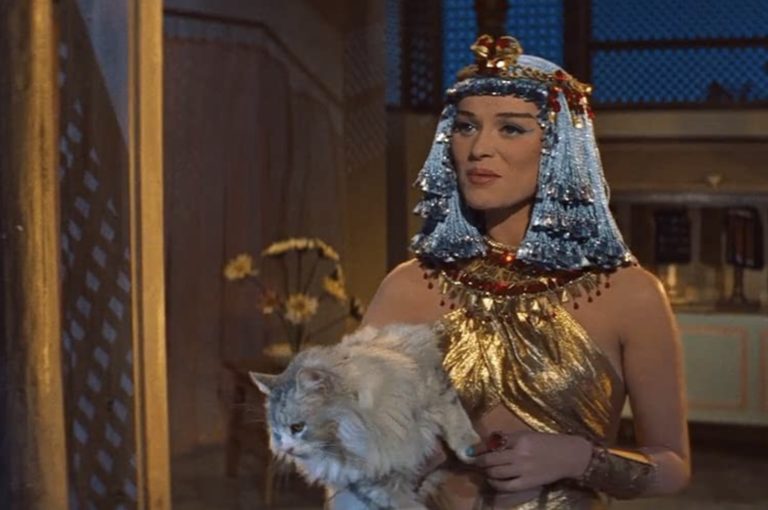
In the first of many lavish, opulent, big-budget Hollywood period pieces from the 1950s and early 1960s paying homage to ancient Egypt, a wandering orphan trains himself to become a physician and achieves such eminence that he becomes the official doctor at the Pharaoh’s court, where he witnesses endless romantic and sexual intrigue among the royals, much of it inspired by the fact that three of Hollywood’s most beautiful actresses at the time—Jean Simmons, Gene Tierney, and Bella Darvi—star as temptresses. The Egyptian is based on a 1945 novel of the same name, which itself was based on an ancient Egyptian fable called “Story of Sinuhe.” The New York Times said the film is “mainly about sex and religion in the time of the Pharaohs” but criticizes the movie for getting lost in big-budget theatrics and losing the human element: “It glistens with archaeological scenery, rumbles deeply with a sense of human woe—and moves at the pace of a death march…The swift and sexy savagery of Egypt has been washed out in ponderous charades, and the roundness and ripeness of the characters has been lost behind piety and costumes.”
Land of the Pharaohs (1955)
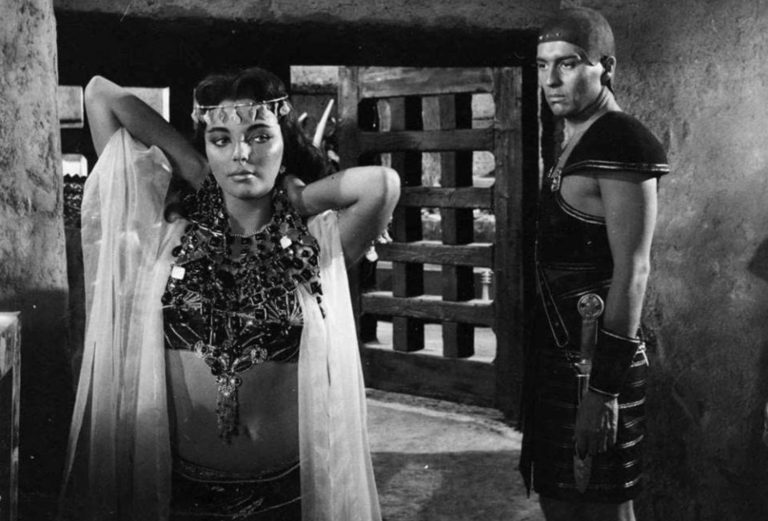
Producer/Director Howard Hawks pulled out all the stops in this masterpiece that centers around King Khufu (Cheops) and his attempts to summon all of the Nile Valley’s resource to build the legendary pyramid at Giza, where he will be entombed and enter the afterworld safe from the predations of bandits and grave-robbers. Hawks claimed to have used 10,000 extras in one scene alone. A young Joan Collins, who would in the 1970s finally achieve American stardom in the TV series Dynasty, stars as the king’s conniving second wife; The New York Times describes Collins’s appearance in Land of the Pharaohs as a “torrid bag in filmy costumes.” The review also praised Hawks’s sense of excess while chastising him for bringing nothing new to a familiar story: “In journeying to Egypt, Howard Hawks has managed to re-create in fascinating style a part of the large picture of antiquity. His story is merely ancient.”
The Ten Commandments (1956)
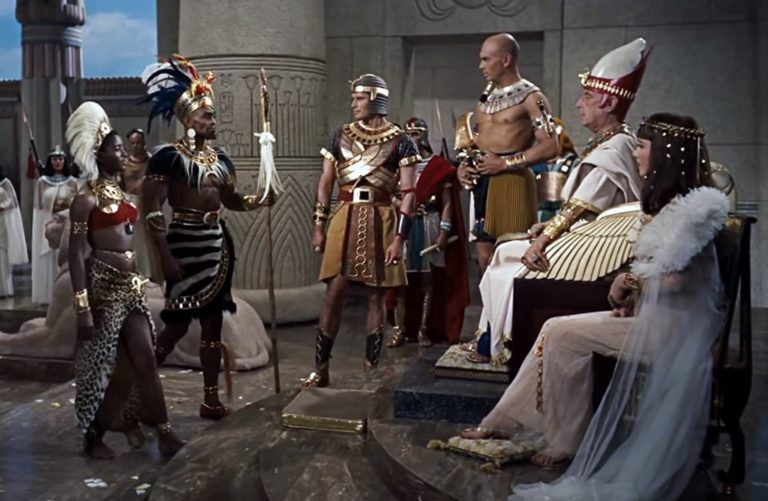
In this high-budget retelling of the events in the biblical Book of Exodus, legendary producer and director Cecil B. DeMille remade his 1923 silent version of The Ten Commandments here in what would be his final and most successful film. Charlton Heston stars as Egyptian prince Moses, who seeks to free the enslaved Hebrews when he realizes he is actually descended from them. He is pitted against the stalwart King Ramesses, played by Yul Brynner. The most expensive film ever made at the time of its release, The Ten Commandments is mostly remembered for the special effects required to recreate the plagues rained by God upon the Egyptians: the burning bush, the Angel of Death, the pillar of fire, the giving of the Ten Commandments from God to Moses on Mount Sinai, and the crowning achievement—the parting of the Red Sea, which took six months to recreate using giant water tanks on a Hollywood backlot.
Cleopatra (1963)
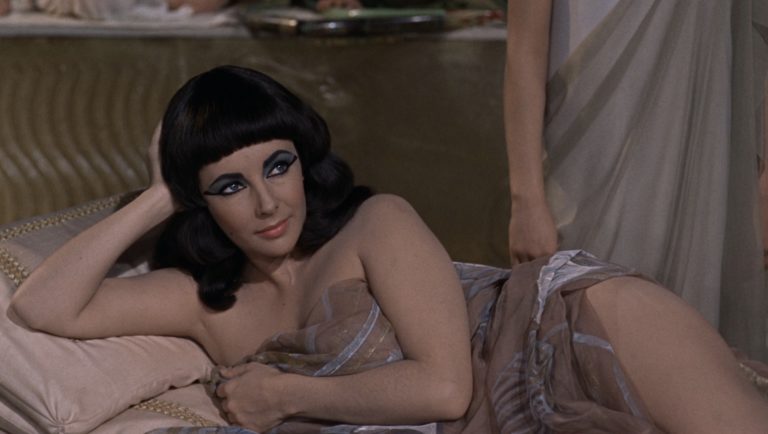
Initially intended to be two three-hour movies: Caesar and Cleopatra followed by Antony and Cleopatra—it was instead cobbled together as a four-hour-and-eleven-minute film simply called Cleopatra due to the fact that Cleopatra (Elizabeth Taylor) and Marc Antony (Richard Burton) became involved in a torrid on-set love affair that became the talk of Hollywood tabloids. The plot deals with the beautiful Egyptian queen who, in her attempts to unite the Egyptian and Roman empires, manipulated both Marc Antony and Julius Caesar (Rex Harrison) with her seductive wiles. The scene where Cleopatra enters Rome on a giant mobile Sphinx is a classic moment of big-budget Hollywood bombast. Calling the film “fraught with imperishable romance, adventure and tragedy,” Bosley Crowther at The New York Times wrote, “I don’t see how you can fail to find this a generally brilliant, moving and satisfying film.” It was also, despite being a Hollywood production, relatively historically accurate.
Farron (1966)
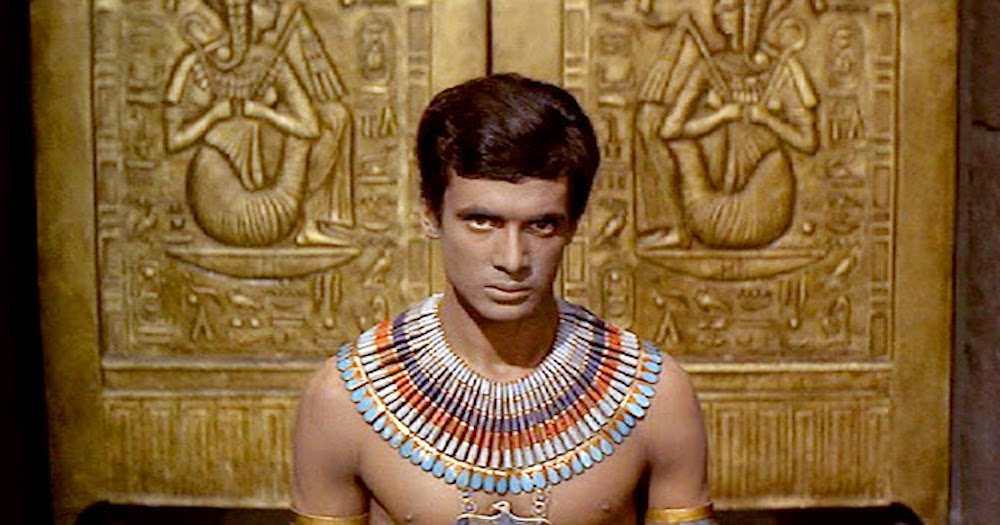
This Polish film directed by Jerzy Kawalerowicz is one of the more historically accurate films about Ancient Egypt and what their civilization was really like. As one Reddit user notes: “The most true-to-life film about ancient Egypt is Faraon. It portrays a fictional king, Ramses XIII, in a fictional story, but the depiction is stunningly faithful to what we believe life in Egypt would have looked like. H. J. Polotsky, one of the greatest Egyptologists to ever live, was the technical advisor. He made sure they got things right.”
Moses the Lawgiver (1974)
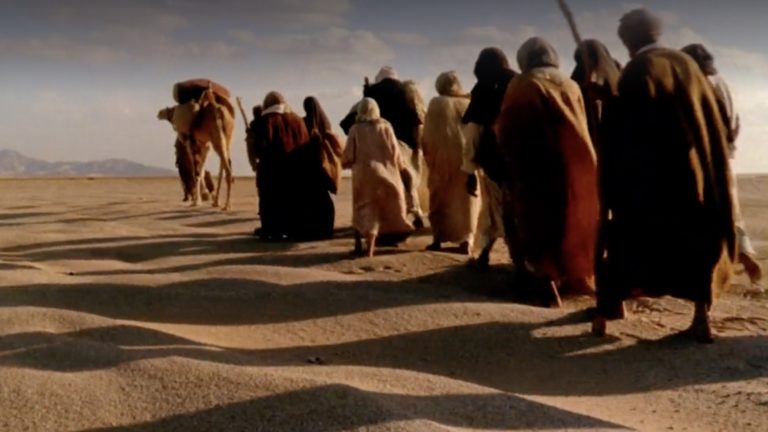
In what was originally a six-hour TV mini-series that was also edited down to a 144-minute film, Burt Lancaster stars as Moses in this recreation of the events in the Book of Exodus that ended with Moses leading the Hebrews out of Egyptian captivity, through the parted Red Sea, and across the desert for forty years until establishing the Hebrew nation. A review in eFilmCritic blasted the movie for being unoriginal: “Despite a great performance by Burt Lancaster, this umpteenth telling of Moses’ story suffers from a lack of direction on the film makers’ part….Despite a game cast and some dramatic scenes, “Moses” does not deliver on its promise.” Special effects were done by Italian horror maven Mario Bava.
Stargate (1994)
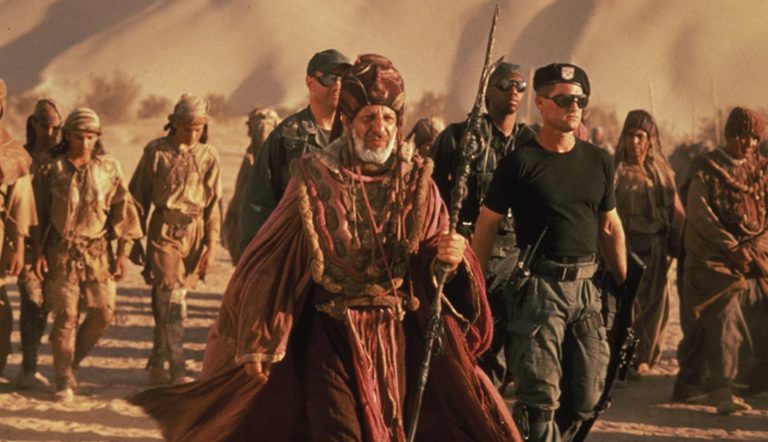
An interstellar teleportation device called “Stargate” is found in Egypt that can take people across time and galaxies in the twinkling of an eye leads to a remote planet populated with ancient Egyptians who worship the sun god Ra. James Spader—who says he found the screenplay “awful” but needed the money—stars as an Egyptologist whose warnings to government officials about the Stargate are routinely ignored. Roger Ebert had a lighthearted take on the film’s awfulness: “The movie ‘Ed Wood,’ about the worst director of all time, was made to prepare us for ‘Stargate’…[it] is like a film school exercise. Assignment: Conceive of the weirdest plot you can think of, and reduce it as quickly as possible to action movie cliches. If possible, include sun god Ra, and make sure something gets blowed up real good.”
The Prince of Egypt (1998)
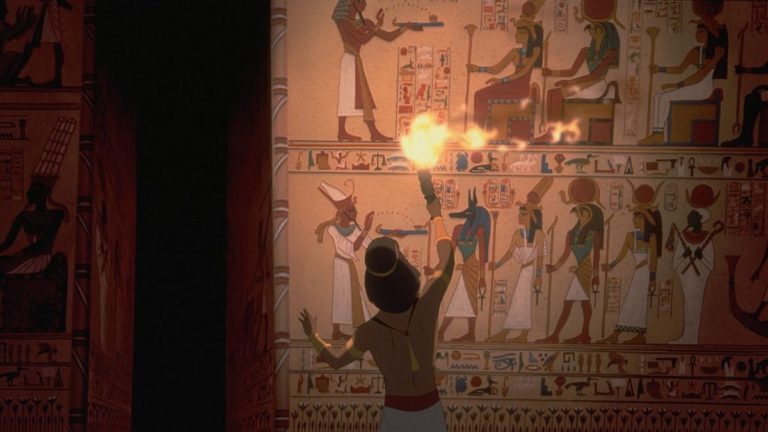
In this animated version of the familiar events in the Book of Exodus, executive producer Jeffrey Katzenberg consulted with an estimated 600 religious experts, all of whom vouched for the film’s religious authenticity upon viewing the final product. Calling it “one of the best-looking animated films ever made,” Roger Ebert praised The Prince of Egypt as being ironically more authentic than previous filmed versions of Exodus: “What it proves above all is that animation frees the imagination from the shackles of gravity and reality, and allows a story to soar as it will. If de Mille had seen this film, he would have gone back to the drawing board….One imagines de Mille had a film like this in his mind, before he had to reduce it to reality.”
The Mummy Returns (2001)
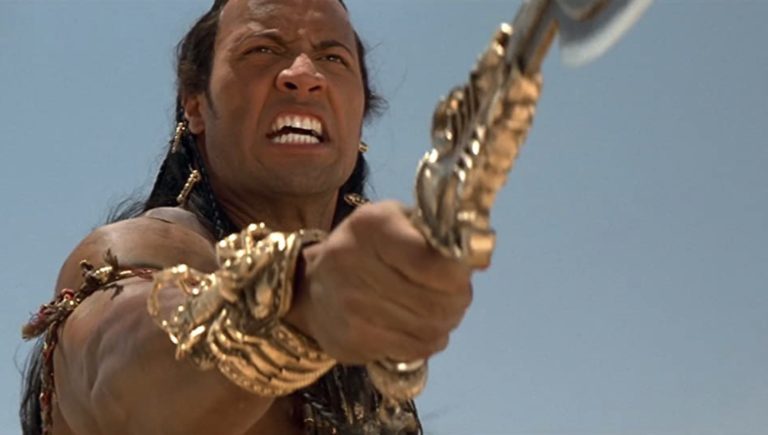
In this sequel to the 1999 remake of 1932’s The Mummy, Imhotep’s mummified body is transported to a London museum, where once again he is accidentally roused from thousands of years of slumber and goes on to wreak vengeance on everything around him. Brendan Fraser reprises his role as Egyptologist Rick O’Connell and was said to have torn a spinal disk, cracked a rib, and injured his knees during production. Dwayne “The Rock” Johnson, primarily known during the time of filming as a wrestling star, suffered food poisoning, sunstroke, and lost ten pounds during filming, claiming it was “the worst I have ever felt in my life.”
The Scorpion King (2002)
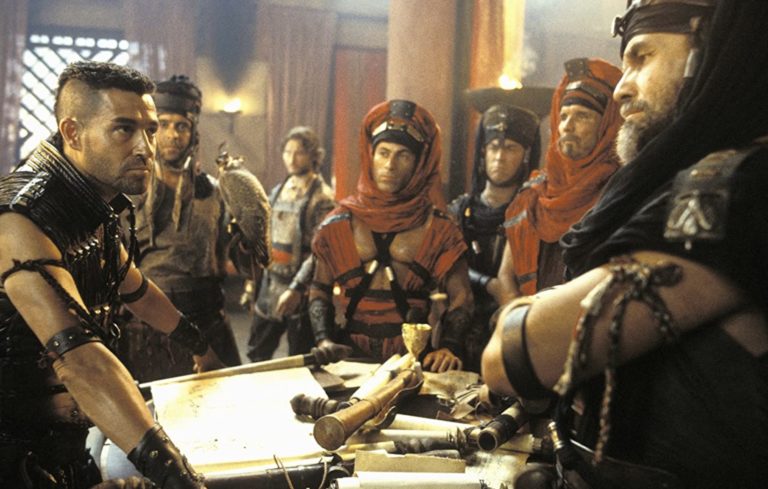
This prequel to 2001’s The Mummy Returns—which was itself a sequel to 1999’s The Mummy, which was a remake of 1932’s The Mummy—leads one to wonder if Hollywood will ever come up with an original idea again or if filmgoers are cursed to 1,000 years of rehashed ideas. But right when one has relinquished all hope, along came the 1995 discovery of the “Scorpion Tableau,” a 5,400-year-old limestone carving that depicts a battle led by a ruler named the Scorpion King that unified Upper Egypt and paved the way for the nation’s first Pharaoh. Dwayne “The Rock” Johnson assumes his first starring role as Mathayus, the Scorpion King, who vanquishes all the warring desert tribes and unifies northern Egypt. A reviewer for the BBC writes, “With a body count that would make Chuck Norris envious, this barbarian action fest is all brawn and very little brains – which is exactly what it set out to be.”
Alexander (2004)
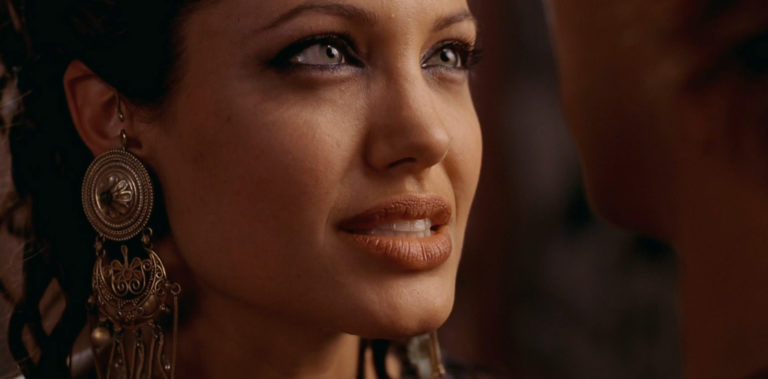
Director Oliver Stone took a biography of Alexander the Great—ruler of the tiny nation of Macedonia who conquered most of the Middle East, Mediterranean, and Northern Africa by the time he reached his late teens—and turned it into this historical epic. Much of the action involves Alexander’s attempts to go down the Nile and vanquish the Egyptian empire. The film hardly made back its $155-million budget at the box office but became one of the most successful DVD releases of all time, selling nearly five million copies.
Agora (2009)
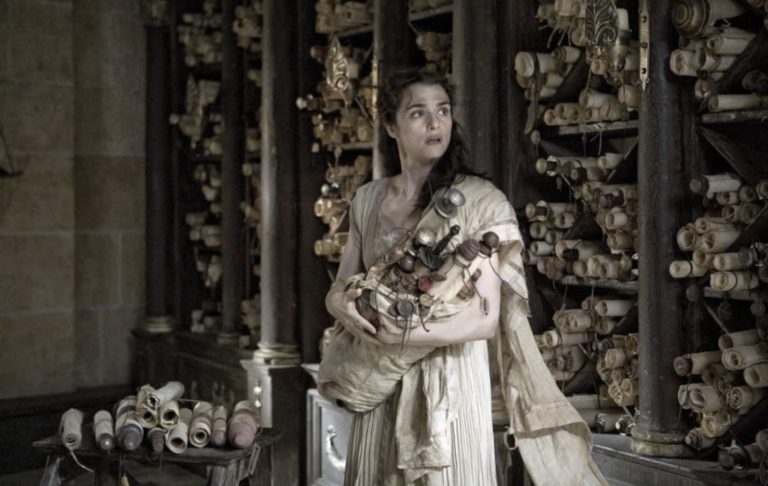
Hypatia of Alexandria was a mathematical genius in the fourth century AD who curated Egypt’s Library of Alexandria, invented the hydrometer, and also rescued many of the ancient Greek texts from rampaging Christian mobs who wound up burning her library to the ground. Without her last-minute rescue of these ancient texts, we likely would never have known of Aristotle or the other great Greek philosophers. Rachel Weisz stars as Hypatia in this retelling of the events leading up to and directly following the tragic burning of the library. Roger Ebert writes, “This is a movie about ideas, a drama based on the ancient war between science and superstition. At its center is a woman who in the fourth century A.D. was a scientist, mathematician, philosopher, astronomer and teacher, respected in Egypt, although women were not expected to be any of those things.”
Exodus: Gods and Kings (2014)
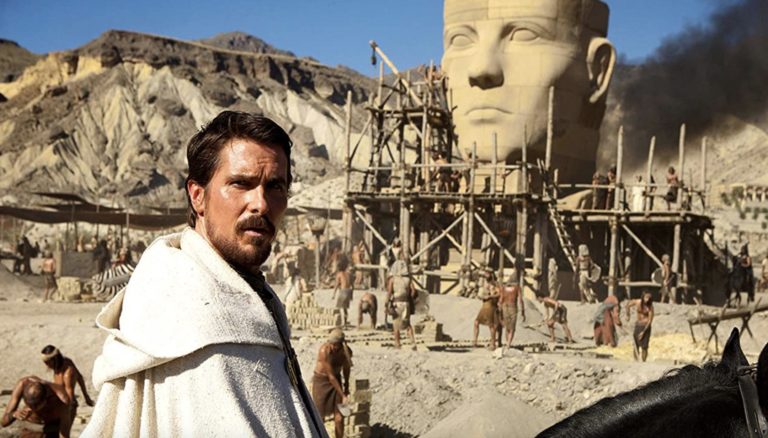
In yet another cinematic retelling of the Book of Exodus, Christian Bale stars as Moses, a Hebrew infant who was saved from a Pharaoh-directed genocide of all male infants and grew up as an Egyptian prince, only to eventually realize he was a Hebrew and lead his captive nation eastward from Egypt into the desert for forty years. The film was banned in Egypt because the country’s Culture Ministry said it not only distorted historical facts, it was racist against Jews because it depicted them as a rebellious, violent mob. A review in The New York Times compared Exodus: Gods and Kings to earlier cinematic biblical epics: “More than anything else, it recalls the wide-screen, Technicolor biblical pageants of the 1950s and early ’60s, bland and solemn spectacles that invited moviegoers to marvel at their favorite stars in sandals and robes.”
Gods of Egypt (2016)
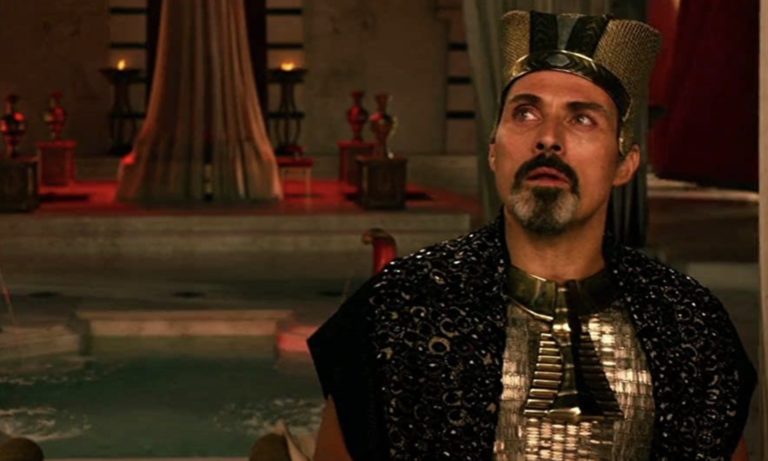
Filmed in the Australian desert because the Sahara was deemed too dangerous, Gods of Egypt details the a clash between the Egyptian god Horus against Set, the god of darkness and who is believed by many to be the template for Western iterations of Satan. The film is based on the Egyptian myth “The Contendings of Horus and Set,” where the two gods battle for control of Egypt. An especially bitchy review in The New York Times says, “If ‘Gods of Egypt’ were any worse, it might be a masterpiece…even as this movie teases you with its absurdity, it also offers you moments of beauty that shimmer like the outstretched wings of a goddess.”
Other Movies About Ancient Egypt

- The Ten Commandments (1923) is director Cecil B. De Mille’s silent-era retelling of the Book of Exodus which he would later remake in the 1956 color-and-sound version starring Charlton Heston.
- The Mummy (1959) is Hammer Film Productions’ attempt to retell the story of Imhotep, a mummy roused from thousands of years of slumber and who goes on a desperate search for his long-lost love.
- Blood Feast (1963) is considered the first slasher film ever made. This exceptionally gory film revolves around an Egyptian caterer named Fuad Ramses, who must use actual human body parts in a feast honoring the Egyptian goddess Ishtar.
- Blood from the Mummy’s Tomb (1971) is a Hammer Film Production wherein an ancient Egyptian goddess possesses the body of a young British girl, leading to a cataclysmic series of events.
- Antony and Cleopatra (1972) was written and directed by Charlton Heston and also stars Heston in the title role as the Roman gesture who is seduced by a beautiful Egyptian queen.
- Death on the Nile (1978) is a murder mystery that takes places in Egypt. It was based on a novel of the same name by Agatha Christie. The 2022 movie of the same name was also based on the same book.
- The Awakening (1980) involves an archeologist whose daughter becomes possessed with the spirit of an ancient Egyptian queen and faces the moral dilemma of whether he should kill his daughter to save humanity.
- Joseph and the Amazing Technicolor Dreamcoat (1999) is Andrew Lloyd Webber’s humorous musical retelling of the biblical story of Joseph, who was sold by his brothers into Egyptian slavery.
- Tale of the Mummy (1998) was described by one reviewer as a “wickedly bad movie.” It’s a generic retelling of the timeworn story of a mummy whose rest is disturbed and then goes on a violent campaign of vengeance.
- Night at the Museum: Secret of the Tomb (2014) is a comedy staring Ben Stiller and Owen Wilson as a pair of bumbling thieves who have to return an Egyptian tablet to a museum before it loses its magic.
- The Scorpion King: Book of Souls (2018) is as film that pairs the Egyptian Scorpion King with the sister of a Nubian king in their desperate attempt to recover a lost “Book of Souls” and save Northern Africa as a result.
- Death on the Nile (2022) was not filmed in Egypt, but this murder mystery flick involves the Nile river and has a controversial cast of actors.
